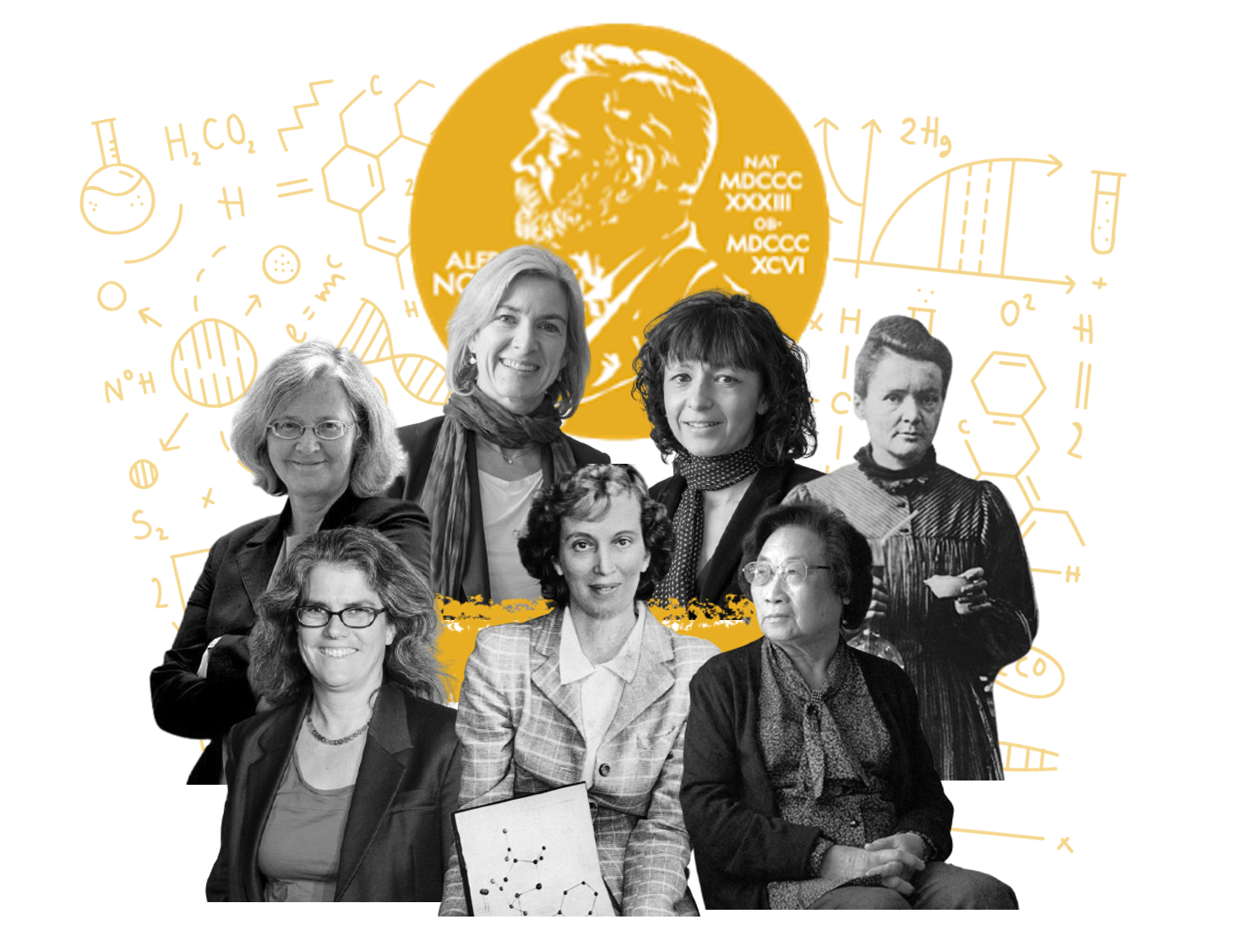
This year, two women shared the 2020 Nobel Prize in Chemistry for pioneering the development of tools to edit DNA. In recent years, the Nobel Prizes have been inclusive of women, but throughout its entire history, there has been a copious amount of sexism and racism which becomes very misleading. Like every other major award system, there are considerable flaws that have no place in a system that calls itself ‘fair’.
The Nobel Prizes started in 1901, and admittedly, women have been awarded since the beginning. The prizes are awarded to recipients in the Physics, Chemistry, Physiology or Medicine and Literature field in Stockholm, Sweden, and the Peace Prize in Oslo. Since then, many women have won these prizes, but the ratio is staggering: a total of 53 women versus 950 men. Realistically, there are fewer women in these industries, so it logically follows that there would be fewer women awarded. However, the fact that there are lower numbers of women in the science field is sexist in itself, as historical patriarchy has systematically pushed the notion that women have no place in a ‘man’s world’. Women should have a place in every line of trade and should not be discriminated against.
The prizes, like every other, denote a long history of sexism. In 1962, Francis Crick and James Watson won a shared Nobel Prize for the discovery of the structure of DNA. However, their findings were only made possible due to data collected by Rosalind Franklin, whose work was shared with the winners without her permission. Franklin was not credited properly within the research paper.
Another example is the story of Esther Lederberg. In 1958, Joshua Lederberg, Esther’s husband, won a Nobel Prize for a technique called ‘replica plating’, a victory only made possible due to Esther’s hard work and research. Not even nominated, Esther accompanied her husband to the award ceremony where he neglected to even mention her name in his speech.
Many men were also wrongly awarded for their ‘work’. With their research either stolen or plagiarised, certain male scientists immorally passed off others’—usually women’s—work as their own. In 1927, a prize was awarded to Johannes Fibiger for discovering a worm that caused cancer and to Julius Wagner-Jauregg for malaria therapy. Fibiger’s discovery was completely false. Wagner-Jauregg treated syphilis patients by infecting them with malaria which resulted in the death of 15% of patients. These prizes were wrongly awarded and have since decreased the value and importance of the award, regardless of whether the presenters of the award were oblivious to their manipulations or not.
In honor of women being recognized for their time, trials, and talents, here is a list of women who have been proud recipients of the Nobel Science Prizes:
Nobel Prize in Physics
- 2020: Andrea Ghez for the discovery of a supermassive compact object at the center of our galaxy
- 2018: Donna Strickland for groundbreaking inventions in the field of laser physics and for their method of generating high-intensity, ultra-short optical pulses
- 1963: Maria Goeppert Mayer for their discoveries concerning nuclear shell structure
- 1903: Marie Sklodowska Curie in recognition of the extraordinary services they have rendered by their joint researches on the radiation phenomena discovered by Professor Henri Becquerel
Nobel Prize in Chemistry
- 2020: Emmanuelle Charpentier and Jennifer A. Doudna for the development of a method for genome editing
- 2018: Frances H. Arnold for the directed evolution of enzymes
- 2009: Ada E. Yonath for studies of the structure and function of the ribosome
- 1964: Dorothy Crowfoot Hodgkin for her determinations by X-ray techniques of the structures of important biochemical substances
- 1935: Irène Joliot-Curie in recognition of their synthesis of new radioactive elements
Nobel Prize in Physiology or Medicine
- 2015: Tu Youyou for her discoveries concerning a novel therapy against Malaria
- 2014: May-Britt Moser for their discoveries of cells that constitute a positioning system in the brain
- 2009: Elizabeth H. Blackburn for the discovery of how chromosomes are protected by telomeres and the enzyme telomerase
- 2009: Carol W. Greider for the discovery of how chromosomes are protected by telomeres and the enzyme telomerase
- 2008: Françoise Barré-Sinoussi for their discovery of human immunodeficiency virus
- 2004: Linda B. Buck for their discoveries of odorant receptors and the organization of the olfactory system
These women more than deserve their awards, and so do the women who were cheated of their recognition. Sexism and lack of diversity have always been an issue in every major award system, and it’s about time we see an end to this unfair discrimination.